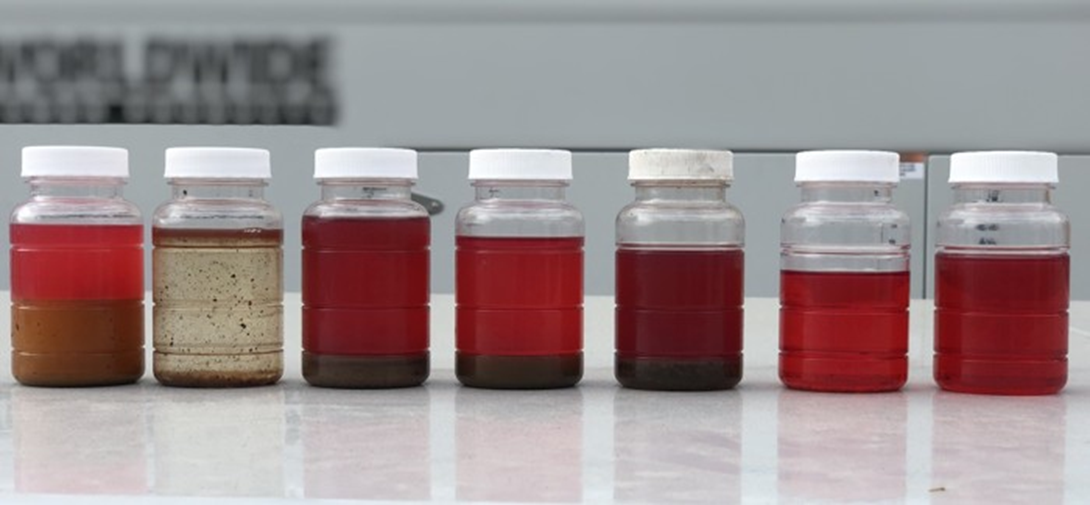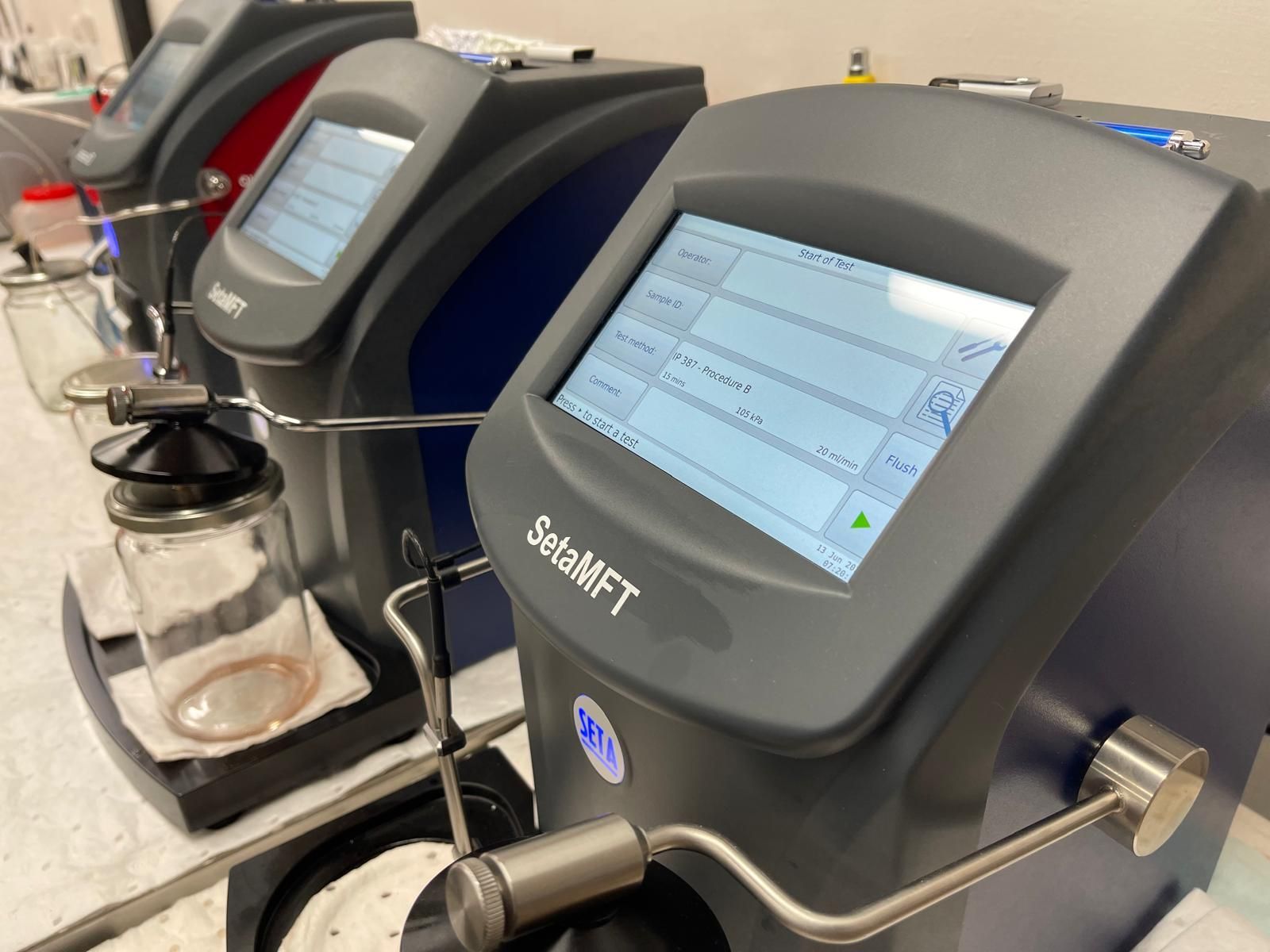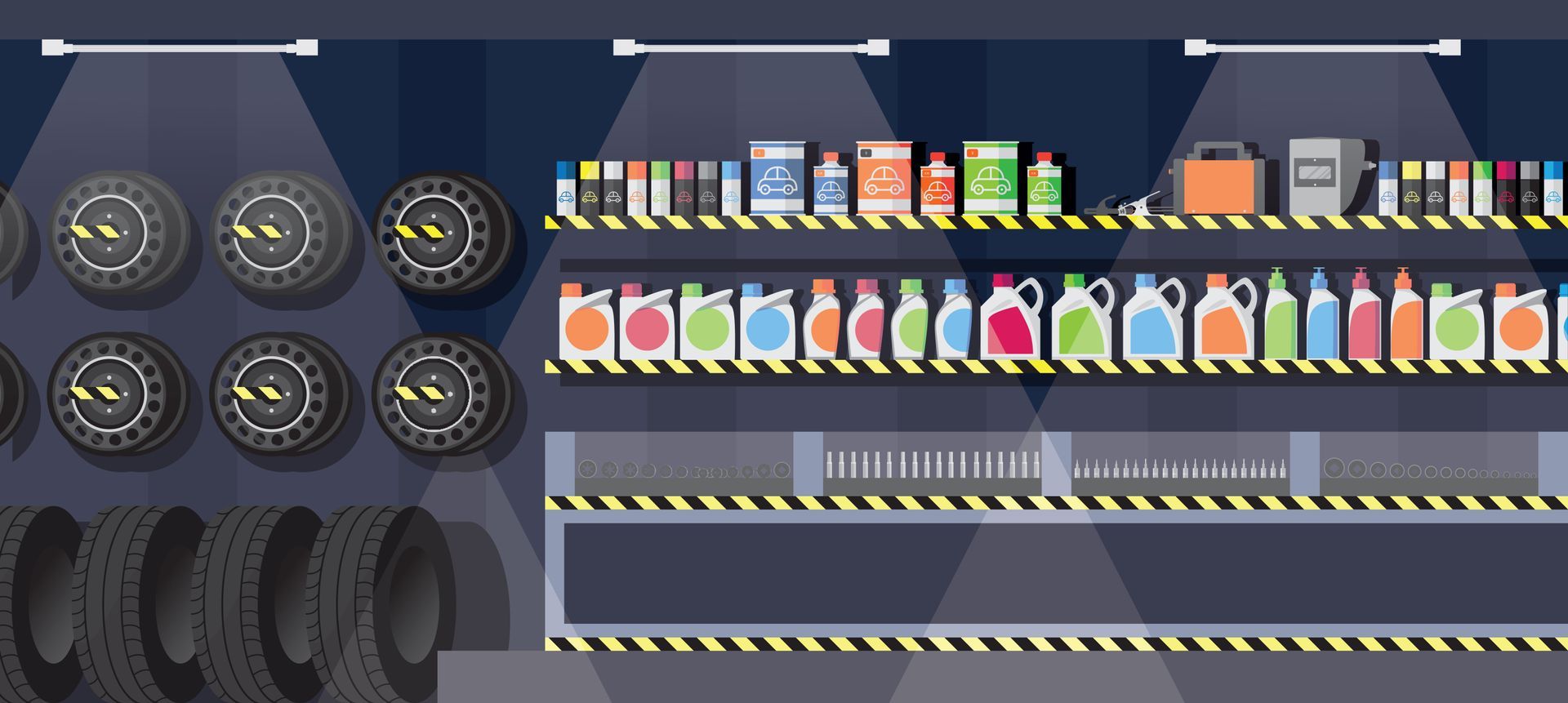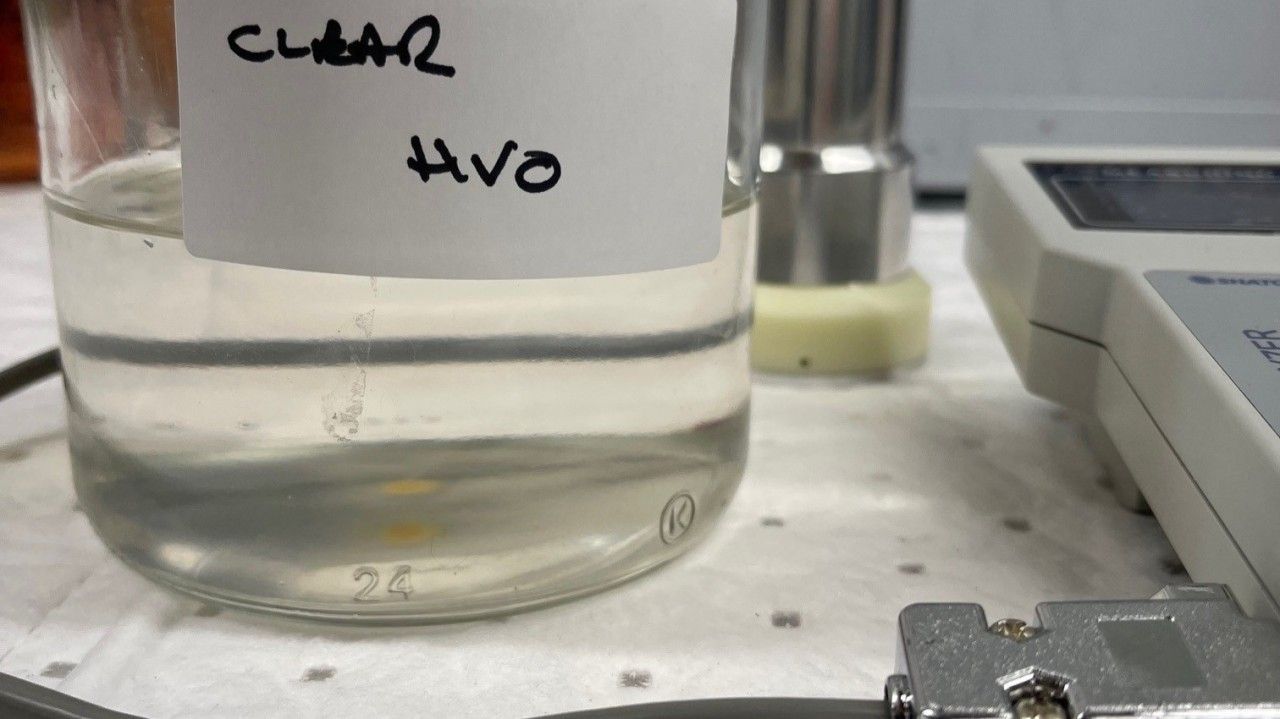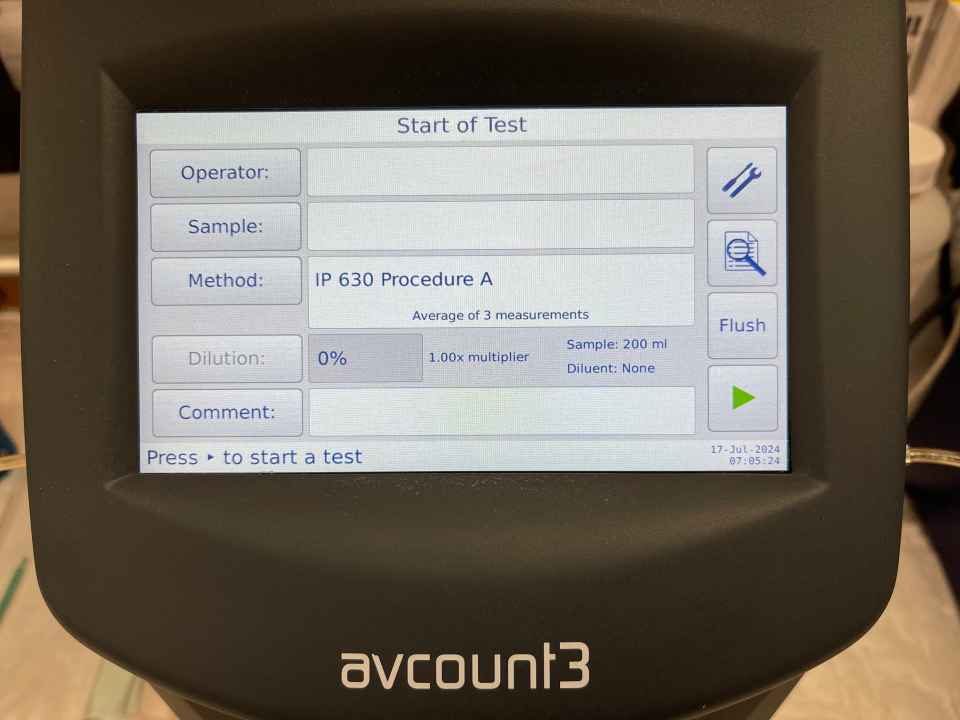Emissions and fuel reduction technology
Emissions &
Fuel Reduction Technology
The market currently has many products and systems to help reduce both Emissions and fuel reduction.
CFCS in partnership with Coval Technologies have further developed their products for a wider market, in conjunction with the original testing and development with City University London.
The 13-year development has established a fuel additive suitable for all carbon based fuels and new HVO based fuels.

The initial invention of HC24™ (previously known as Aquasolve™) followed by many years of research at the City University London and other Institutions primarily sought to provide a technology that would not compromise engine or fuel performance.
Areas of particular interest included spray pattern testing, diesel bug, freeze curve and pour point, emissions and fuel consumption with longevity and stability of the fuel in storage and low use stored fuels.
Fuel Specification testing was conducted Independently by Intertek UK and Lloyds Register, to ensure compliance to the specifications. This was to ensure that HC24™ met the demands of the OEM, and ensures warranties are not affected.
All R&D support documents and Intertek UK testing documents can be found on https://www.cfcsanalyticalservices.co.uk/hc24
An independent fuel and emissions test using AGS-688 with SGD-010 Diesel Emission Upgrade, provided the following results in real world testing on a Volvo 259Kw engine. The testing was conducted by the client over a 3-month period and reported the following.
1. CO2 59% reduction
2. NOX 66% reduction
3. 10% fuel reduction
Contact
enquiries@contaminatedfuel.co.uk for any further information.
